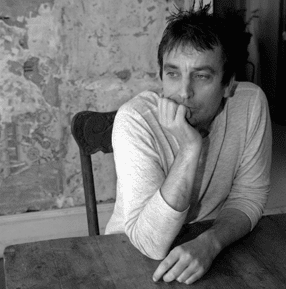
ENGLISH READING CIRCLE ON POETRY AND PROSE POETRY – POEM OF THE MONTH ANALYSIS: “IF THIS IS YOUR FINAL DESTINATION” BY NICK FLYNN
This month’s poem, “If This is Your Final Destination” (2015), by Nick Flynn, mixes the mundane with the metaphysical, as the speaker meditates on the large, almost unanswerable questions of existence—what happens to us when we die?—and tries to string together a coherent narrative out of his past, present, and future. These different epochs of his life and their accompanying memories resurface insistently throughout the poem; the speaker knows there is a connection between them, but not what that connection is, nor how to grasp it.
Our speaker appears most grounded in reality whenever his attention is focused on his daughter. The all-consuming demands of parenthood provide a stability of sorts via opportunities to create order in a world increasingly characterized by chaos. Through the simple act of stopping his daughter from flooding her bowl of cornflakes with milk, the speaker imposes limits on the physical world around him, and is reassured of his own relationship to time and space. But this sense of reassurance does not last. Any sense of permanence is threatened by the possibility of absence, as embodied by the woman on the television, “once apparently enormous” now evidently not, whose empty jeans signify the apparent mutability of physical reality, reminiscent of the magician’s trick: now you see it, now you don’t.
There is a sense of the precariousness of existence here, an anxiety that underpins the poem, a fear that the world as we know it could suddenly vanish. The logic of the poem works through a series of associations, so that seemingly innocent occurrences are suddenly revealed to have sinister implications; the daughter pouring milk into her bowl of cornflakes becomes a microcosmic example of the terrifying possibility of being engulfed by an unstoppable force of nature, just like the man sucked into the earth by a “sinkhole [that] opened below his bed.” In this way too, the admission that the speaker “drags” his daughter “everywhere” leads him to remember his own childhood, to those moments spent “swivel[ing] on the red stool at the supermarket lunch counter,” when he accompanied his own mother to work. The father’s relationship with the daughter mutates into the mother’s relationship with the son; but no reassuring parallels can be drawn, no lessons are here to be learned. Rather, the dead, or even those who simply are no longer present, haunt the poem. Longed for yet feared, they threaten the physical boundaries of our world with their power to suddenly turn up from another realm, if one utters the right incantation.
Thus, the speaker’s attention to his daughter seems a desperate effort to anchor himself to a point of unchanging calm, an attempt to prevent himself from swiveling, twirling, or wandering away. His attention, his gaze are continually drawn elsewhere, namely upwards and to those things that are otherworldly: to the television sets bolted to the walls above the breakfast table in the hotel restaurant, to the airport announcements murmuring above over the loudspeaker, to Paradise itself, ultimately unknowable and perhaps therefore more alluring than anything else in the speaker’s world.
In this constant and uneasy interplay between desires admitted and denied, it seems as if the speaker is desperate for the little details and facts of life that hold no greater significance. “If This Is Your Final Destination” captures that sense of disorientation and dislocation familiar to anyone who has spent too many lonely hours of dead time in airport lounges, and hotel restaurants and lobbies. The dread that accompanies that feeling of being stuck in limbo drives us to conjure up memories of own existence, to reassure ourselves of our own solidity, in order to fight off the feeling of being swallowed whole by forces greater than ourselves. And it is at times like this that we crave the assurance of solid facts that offer nothing more than their own evident existence: strawberry does indeed taste like strawberry.
Don’t forget that we’ll be showing the film, Being Flynn (2004), an adaptation of Flynn’s memoir, Another Bullshit Night in Suck City (2004), after our poetry discussion. The film portrays Flynn’s work in a homeless shelter in Boston in the 1980s, and explores Flynn’s difficult relationship with his own father.
Happy Reading,
Chiara



